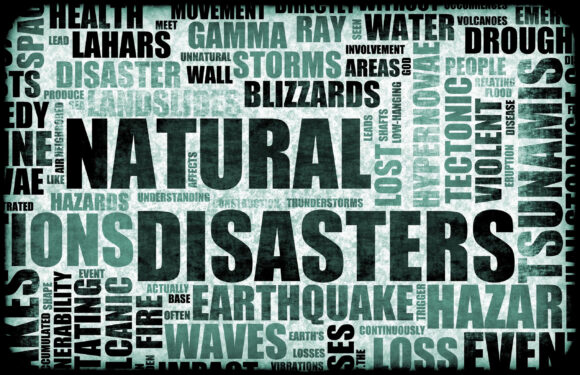As homeowners continue to file insurance claims in the wake of Hurricanes Harvey and Irma, a research report released by the Rutgers Center for Risk and Responsibility at the Rutgers Law School in Camden, N.J., suggests many could find that their level of protection depends on the state where their damaged home is located.
The report, “State Rankings of Homeowners Insurance Protections: Consumer Remedies,” is part of the Essential Protections for Policyholders legislative reform project, an initiative of the Rutgers Center for Risk and Responsibility in cooperation with United Policyholders, an advocacy organization and information resource for insurance consumers.
It is a two-year project that focuses much of its research on consumers that file ordinary claims, examining what they are surprised or disappointed by and how some of the best states are protecting insurance consumers, Jay Feinman, co-director of the Rutgers center and a professor at the law school, said in a previous interview with Insurance Journal regarding the project.
The project aims to identify and expand on essential protections in an effort to strengthen what can be a complicated and challenging process, as there is a significant knowledge gap in how homeowners’ coverage varies nationally, according to Feinman. It focuses primarily on state legislation and regulation concerning the relationship between homeowners and insurance companies.
Protections the project found as essential for homeowners were selected by importance based on United Policyholders’ and Feinman’s experience in the insurance industry.
The latest report, researched by Feinman and Amy Bach, executive director at United Policyholders, advocates for the revision of state insurance laws to better protect disaster victims. This comes at a time when Florida and Texas have felt the recent impact of two major hurricanes – Harvey and Irma.
Hurricane Harvey made landfall on Aug. 25 as a category 3 hurricane with 130 mile per hour winds, just east of Corpus Christi in the Rockport/Port Aransas communities in Texas. Harvey’s winds caused extensive damage in the area and farther inland, resulting in 70 deaths. The Insurance Council of Texas (ICT) has placed the insured losses from Hurricane Harvey at $19 billion. That number includes an estimated $11 billion in flood losses insured by the National Flood Insurance Program.
Reuters also reported that Florida policyholders so far have filed nearly $2 billion in claims to insurers for damage from Hurricane Irma, according to the state’s insurance regulator. According to Reuters’ reports, Irma was ranked as one of the most powerful Atlantic storms on record before striking the U.S. mainland as a Category 4 hurricane on Sept. 10. The storm killed at least 33 in Florida.
Insurance Protection
Feinman’s research says that half of the states in the U.S. allow policyholders to sue insurance companies only if they have intentionally or recklessly denied a claim, and nearly 15 states give consumers no remedy if insurance companies act wrongfully, making recovery from a natural disaster such as a hurricane difficult.
“Insurance funds are make or break for an individual’s ability to rebound after a disaster,” Bach stated in a press release issued by Rutgers University. “History tells us that those funds don’t always flow as they should, and many have to fight to get the protection they’ve paid for.”
Feinman added in the release that for an insurance policy to provide the protection and security it promises, the policyholder must have access to a fair and efficient process for resolving disputes and remedying improper conduct by the company.
“Homeowners who do not receive prompt payment may have additional expenses due to being out of their homes and may suffer extreme aggravation and distress,” Feinman said in the release. “If policyholders have to pay attorneys and incur other litigation expenses to get what they are entitled to, they are never fully compensated for their losses.”
With this in mind, the report suggests that disaster victims should have flexibility in coverage provisions and the claims process, clear rules about causes of loss to avoid unfair gaps in coverage, and disaster victims should be protected against sudden dislocations in the insurance market. It outlines current state laws and calls for updated statutory language to provide more certainty for insurance companies and better protection for policyholders.
Consumer Remedies
The project also issued a series of rankings by state on what it identified as key issues by evaluating states’ current systems of insurance regulation. The latest state rankings for the project are based on the protection and security that a homeowners insurance policy provides when a policyholder files a claim, and what the project sees as key elements in providing homeowners insurance policyholders with effective remedies for disputed claims.
Five stars served as the highest ranking in the report, and one star was the lowest. The report ranked Hawaii and South Carolina as the best states for consumer remedies, while it gave New York, Wyoming, Washington D.C. and Virginia the lowest ranking.

In Hawaii, a state that was given a five-star ranking, the Insurance Division at the Department of Commerce and Consumer Affairs has taken extra steps to protect consumers by maintaining a 13-month freeze for insurers from exiting out of the homeowners insurance market and allowing the Commissioner to reactivate the Hawaii Hurricane Relief Fund to ensure access to coverage should a large event occur, Insurance Commissioner Gordon Ito told Insurance Journal.
“Hawaii residents mostly understand the susceptibility and isolation of the state during hurricane season, which leads to a generally more knowledgeable and prepared public,” he added. “We will continue our efforts to better inform and protect consumers through appropriate platforms, outlets, methods and legislation.”
South Carolina was another state given a five-star ranking in the report.
“I think for South Carolina, our statutes regarding homeowners insurance are certainly adequate. However, it’s not necessarily what the statute says; it’s how insurance companies serve their policyholders, and we are ever mindful of that,” South Carolina Department of Insurance Director Ray Farmer said. “Generally, the insurance industry does a fantastic job. It’s our time to shine, and it’s their time to shine after a natural disaster, and they do.”

He added that when a state of emergency is declared by the Governor in the wake of a storm, it gives Farmer as director extra authority to issue an emergency regulation that allows for emergency adjusters to come in to the state and puts a moratorium on cancellation/non-renewals.
“At the department of insurance, we take our responsibilities extremely seriously, and one of those is consumer services.” Farmer stated. “We make sure that our folks are assisted in any way possible.”
A spokesperson for the Virginia Bureau of Insurance, a state that ranked the lowest in the report, echoed these thoughts, stating that the Bureau has an obligation to ensure licensed insurance companies comply with Virginia insurance law and applicable regulations.
“The Bureau of Insurance assists thousands of consumers each year by responding to inquiries and complaints regarding an insurance policy,” the spokesperson said, adding that between January and August of 2017, its staff has handled 1,589 complaints and recovered more than $1,219,752 for consumers. In addition, they have assisted 4,862 consumers who called the section for help.

In the future, the project is advocating for more states to adopt a mediation program for property insurance disputes and an appraisal process providing neutral parties to assess aspects of a claim. It also calls for states to prohibit companies from including clauses in insurance policies that force policyholders to arbitrate claims instead of giving them a chance to have their case heard in court.
“We have been doing as much work as possible with the states,” Feinman said. “We’re in this for the long-term, and every little bit helps.”
Topics Catastrophe Natural Disasters Texas Carriers Legislation Florida Hurricane Homeowners Market Virginia South Carolina
Was this article valuable?
Here are more articles you may enjoy.



 Insurance Broker Stocks Sink as AI App Sparks Disruption Fears
Insurance Broker Stocks Sink as AI App Sparks Disruption Fears  World’s Growing Civil Unrest Has an Insurance Sting
World’s Growing Civil Unrest Has an Insurance Sting  Former Broker, Co-Defendant Sentenced to 20 Years in Fraudulent ACA Sign-Ups
Former Broker, Co-Defendant Sentenced to 20 Years in Fraudulent ACA Sign-Ups  Munich Re Unit to Cut 1,000 Positions as AI Takes Over Jobs
Munich Re Unit to Cut 1,000 Positions as AI Takes Over Jobs 


